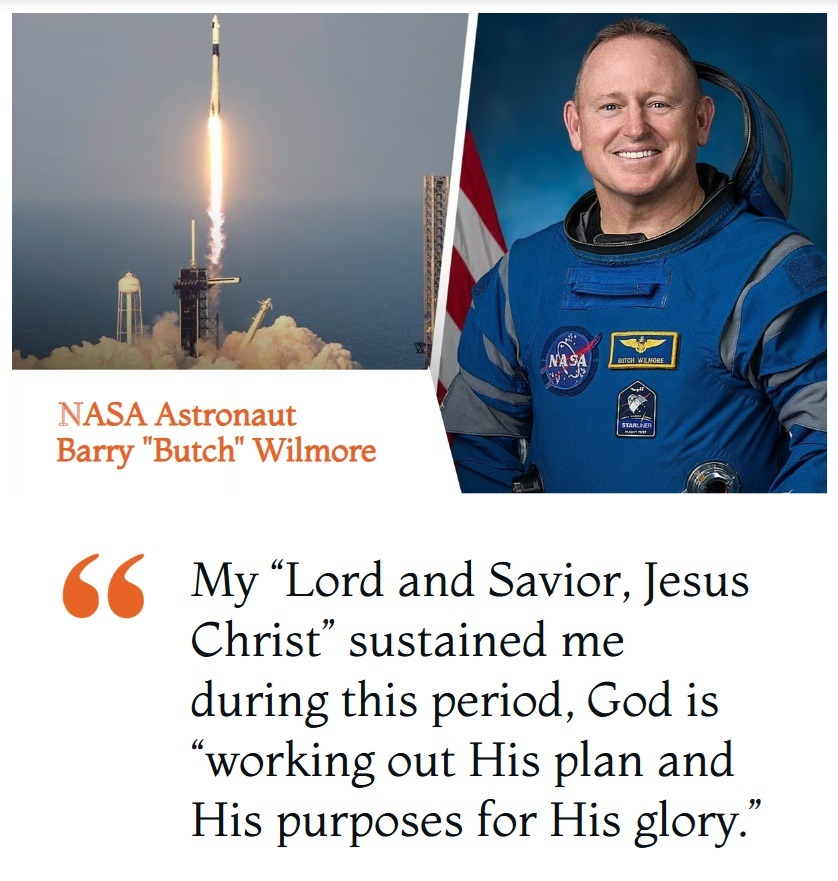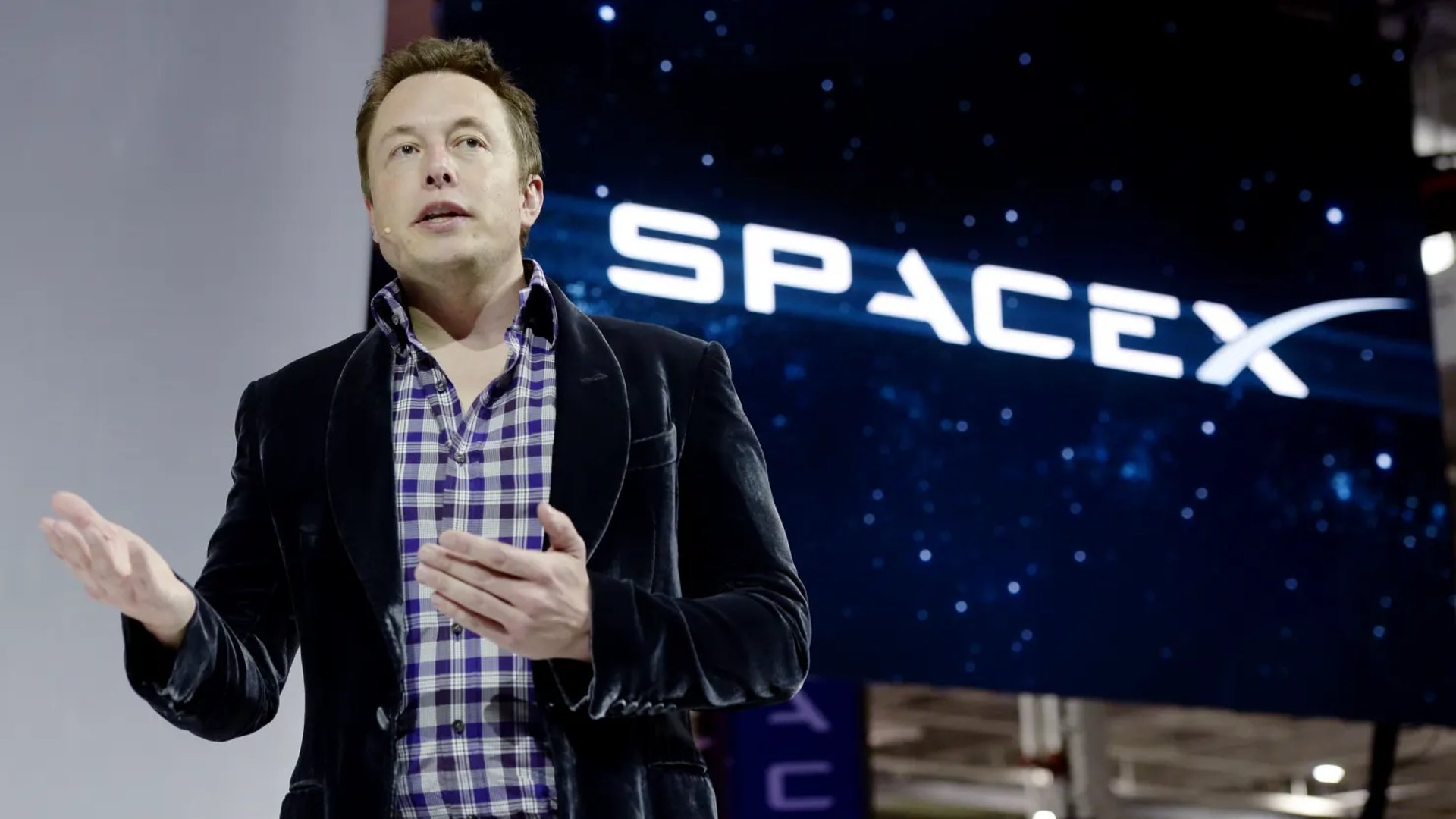
Faith, Science, and the Resilience of Astronaut Butch Wilmore
When astronauts Butch Wilmore and Suni Williams were stranded in space for nine months, science alone wasn’t enough to sustain them. For Wilmore, faith in Jesus Christ provided the ultimate anchor. This blog explores how his deep faith, alongside his scientific expertise, challenges the false divide between science and belief in God. Read on!
SCIENCE & TECHNOLOGYGENERAL TOPICSSOCIAL COMMENTARYCHRISTIANITYNATIONAL SECURITY


Stranded in Space
The gripping story of American astronauts Butch Wilmore and Suni Williams—stuck in space for nine months due to a Boeing Starliner failure—reminded the world of the fragility of human endeavors, even in the most advanced scientific frontiers. While the ordeal tested their resilience, one question stands out: What kept them going?
For Butch Wilmore, an accomplished astronaut, engineer, and former Navy test pilot, the answer was clear. He is not only a man of science but also a man of deep faith—an elder in his church, committed to his belief in Jesus Christ. When reflecting on the experience, he did not attribute his endurance merely to scientific knowledge or technical expertise but instead to his unwavering trust in God.
Butch said,
“Well, I can tell you honestly, my feeling on all of this goes back to my faith. It’s bound in my Lord and Savior Jesus Christ.”
Wilmore emphasized that God was orchestrating His plan, working through even the most challenging situations for His glory. He cited Hebrews 11, a biblical chapter that highlights the power of faith, stating:
“I understand that He’s at work in all things. Some things are for the good, and some things look to us to be not so good. But it’s all working out for His good, for all those that will believe.”
Science and Faith: A False Dichotomy?
Wilmore’s testimony challenges a modern fallacy—the idea that science and faith are inherently incompatible. Many today take pride in waving the banner of "science," not as a method of discovery but as a weapon against faith. Some go as far as mocking believers, calling them irrational or ignorant, as if belief in God contradicts an understanding of the natural world. Ironically, those who make these bombastic claims often have only a superficial grasp of science themselves, or they simply fancy this thing called science.
By contrast, Wilmore is not just familiar with science—he has lived it. His mastery of physics, engineering, and spaceflight is at a level few can fathom. He has calculated trajectories, controlled spacecraft, and directly experienced the cosmos in ways that textbooks alone could never convey. And yet, with all his knowledge and firsthand exposure to the grandeur of the universe, he remains steadfast in his faith in Jesus Christ.
Astronaut Butch Wilmore is not alone. Consider Dr. Francis Collins, the former Director of the National Institutes of Health (NIH) and leader of the Human Genome Project. Collins, who holds a PhD in physical chemistry and an MD in medicine, once identified as an atheist. However, his extensive study of genetics—the intricate code of life itself—led him to a belief in God and, ultimately, faith in Jesus Christ. His journey echoes a profound truth: it is not ignorance of science that leads people to faith, but often a more profound knowledge of it.
Meanwhile, many who scoff at believers have never worked through a complex equation, conducted a scientific experiment, or even truly understood the principles they claim to champion. Their confidence in their "rationalism" or “naturalism” is often rooted in a social bandwagon effect—impetuously adopting the belief that "smart people don’t believe in God or religion." In their “Me Too” mindset—where conformity outweighs critical thought—they eagerly parrot popular “science” slogans and buzzwords, not out of deep understanding, but because aligning with the prevailing intellectual trend grants them a sense of belonging and perceived sophistication.
Yet, real scientists—those at the cutting edge of human knowledge—tend to be far more humble. I know of many professors of science, engineering, and technology who are deeply religious. They recognize that science is a tool for understanding the natural world, but it does not answer the ultimate questions of purpose, meaning, or morality. Again, I suggest that many who trumpet “science” as an argument against faith often do so not out of true scientific curiosity but from a misplaced sense of intellectual superiority.

The Role of Elon Musk’s SpaceX in Bringing Butch Wilmore and Suni Williams Home
Elon Musk, founder and CEO of SpaceX. Getty Images
Amid the crisis, another key player emerged—Elon Musk’s SpaceX. While Boeing faced significant setbacks with its Starliner program, SpaceX’s proven success with human spaceflight played a crucial role in resolving the situation. The company’s advancements in reusable rockets and its reliability in ferrying astronauts to and from the International Space Station underscored the importance of private-sector innovation in modern space exploration.
Elon Musk remains a significant figure in spaceflight innovation, even as his involvement in the current U.S. administration continues to generate both support and controversy. While some admire his contributions to technology and exploration, others take issue with aspects of his leadership and influence in shaping and implementing President Donald Trump’s policies. Regardless of these differing perspectives, his impact on technology and space travel is undeniable. It was the advancements pioneered by his SpaceX that ultimately enabled the safe return of Butch Wilmore and Suni Williams. This episode underscores a broader lesson: science and engineering thrive not in isolation but through public-private collaboration, perseverance, and— for some—faith that there is a greater purpose at work, unrestrained by political or ideological divides.
My Call for Humility
In the end, I can only sympathize with those who feel compelled to use the word “science” as a tool for self-importance. True understanding, whether in science or faith, requires humility. Butch Wilmore, a man who has touched the stars and lived in the very frontier of human exploration, understands this. He knows that even in the vast emptiness of space, God is present. And that is a truth no spacecraft failure can erase.
COMMENTS: Comments are disabled for this post.



